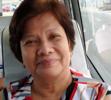Changing lives with education
- Details
- Blog Content
- Hits: 4401
The most important factor that changed the economic landscape of Maguindanao and Cotabato City at the turn of the millennium is the entry into the various professions by native Maguindanaons and Iranons. This was made possible by the high value placed on education. Suddenly, there is the realization that education is the key to a better future.
This is a far cry from the post war years when the native population is tied down to the mistaken notion that sending children to be educated in universities will “westernize or modernize” them, or worse will cause them to be converted to Christianity. Thus, even when there were scholarships available in the best universities (especially for the sons and daughters of local Datus), very few availed due to this perception. To name a few, the Pahms and the Piangs, were the first professionals (mostly educators) of the Maguindanaon tribe. This was followed later by the Pendatuns, Sinsuats, Sambolawans, Candaos, Baraguirs, and the Masturas who concentrated more on the legal profession, thus figuring prominently in local and national politics.
With the improvement in the local economy of the 70’s, a few sons of better off families who are not identified with Maguindanaon or Iranon royalty went to the local schools, Notre Dame University in particular, who later finished their degree in Engineering. They were the first Muslim OFWs, having been given the chance to work in the Middle East due to their educational qualification. Their stint there brought wealth through remittances to their families. Until now, this is a realization that education, even for the “masa”, can improve a family’s status in life. It also changed the perception that the impact of education is to “Christianize” or “westernize” a person.
As a result, families strived to send their children to college, especially to the best schools they can afford. There is no hesitation in sending children to Manila, Cebu, or Davao universities. The choice of profession shifted from Engineering to Nursing, and those who can afford the expensive medical schools produced the highly esteemed Medical Doctors. There is now an abundance of Muslim doctors, nurses, lawyers, and engineers in Maguindanaon and Iranon society.
On hindsight, those who became successful through education were children of “royalty” and local entrepreneurs. Their families’ status already assures the students access to better education to qualify them to enter the better schools. What will break the barriers that relegate the ordinary families to ordinary lives? Majority of the Muslim population are dependent on agriculture and fishing, where the income is what we call “subsistance” – barely enough to provide for the basic necessities of life. The situation of primary and elementary education can be similarly described.
If we want education to be the turning point in a person’s future, education in the rural areas should be upgraded. There should be better educational facilities to put rural students at par with those attending the urban schools. This will decongest the urban school population since a lot of parents send their children to urban schools to avail of higher quality education. The K + 12 program is seen to cater to the needs of all in the future, but hopefully, this will not deprive children in the rural areas the improved educational services that they rightfully deserve. In the country’s quest to alleviate poverty, education should be considered a primary concern, not in the future, but now.
 Eva Kimpo-Tan is the editor-in-chief of The Mindanao Cross, the oldest Catholic weekly in the southern Philippines.
Eva Kimpo-Tan is the editor-in-chief of The Mindanao Cross, the oldest Catholic weekly in the southern Philippines.

